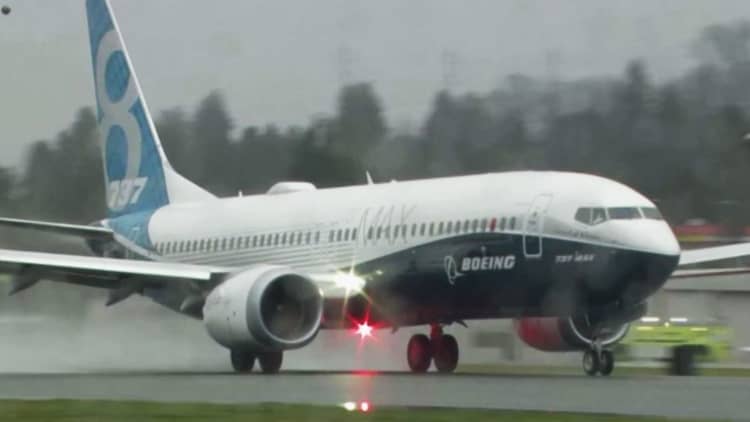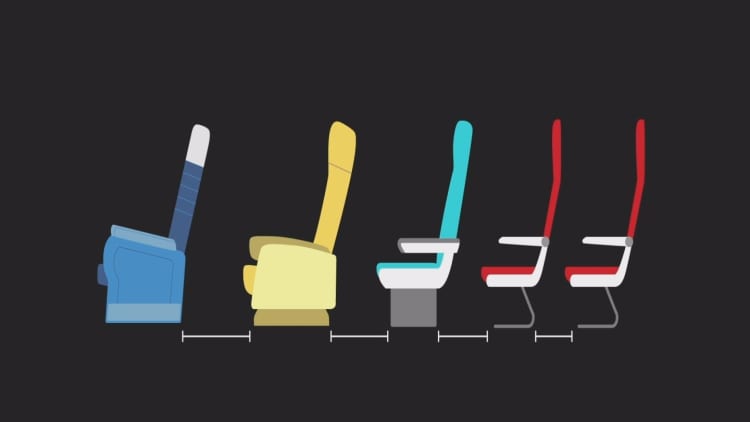Boeing failed to warn the airline industry about a potentially dangerous feature in its a new flight-control system that is suspected of playing a role in the fatal Lion Air crash in Indonesia last month, The Wall Street Journal reported late on Monday.
That aircraft feature is the automated stall-prevention system found on Boeing 737 MAX 8 and MAX 9 models, the Journal reported, citing industry sources including safety experts, aviation regulators and airline pilots.
In response to CNBC's request for comment, Boeing said it is "confident in the safety of the 737 MAX."

"We are taking every measure to fully understand all aspects of this incident, working closely with the investigating team and all regulatory authorities involved," a spokeswoman said in an email.
The system in question is designed to help pilots avoid raising a plane's nose too high, which can cause it to stall, according to the report. The potential fault in the system is that it can push the plane's nose down "unexpectedly and so strongly" that pilots can't pull it back up even when flying manually, the report said. It added that when that happens, the plane could dive or crash.
Boeing revealed the possible fault in a bulletin to airlines about a week after the Lion Air crash, the report indicated.
Lion Air's new Boeing 737 MAX 8 crashed into the Java Sea last month shortly after taking off from Jakarta's Soekarno-Hatta airport. The plane was carrying 189 people, including crew.
For the full report on Boeing's flight control feature, read The Wall Street Journal.



